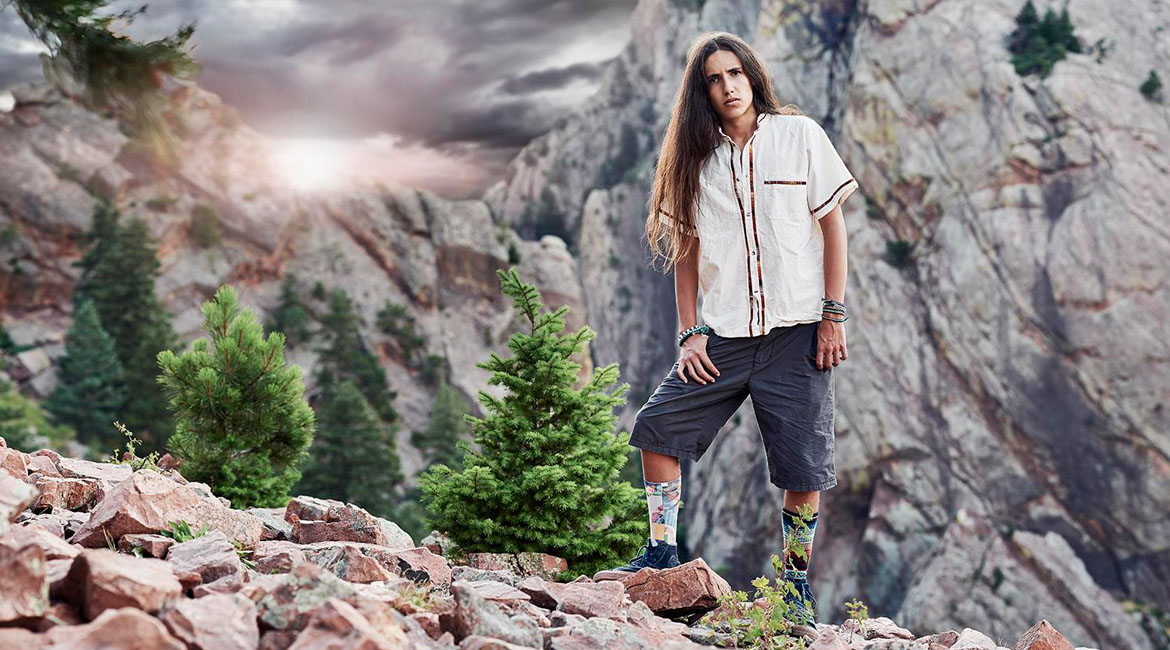Youth Activists Rising: 8 questions with climate activist, hip hop artist and author, Xiuhtezcatl Martinez

Xiuhtezcatl Martinez is an indigenous climate activist, a conscious hip-hop artist, a sought-after speaker, and author of the book We Rise — and he’s only 18. As youth director of Earth Guardians, a Colorado-based nonprofit that helps “crews” of young people mobilize to effect change in their communities, Xiuhtezcatl (pronounced Shoe-Tez-Caht), has traveled around the world to speak on climate change and the future of the planet. At age 12 he received the United States Community Service Award from President Barack Obama, and was the youngest person chosen to serve on the president’s youth council. His work has been featured on PBS, National Geographic, Rolling Stone, The Guardian, Bill Maher, VICE, and more.
Taking it to the courts, he’s also one of 21 youth plaintiffs in Juliana v. the United States, a lawsuit against the U.S. government that claims the government violated the rights of younger generations by promoting activities leading to climate change (the youth plaintiffs, including Xiuhtezcatl, have a hearing at Ninth Circuit Court of Appeals in Portland, Oregon on June 4, 2019, to determine the future of the case).
We spoke with him about climate change, his vision for youth activism, and his journey to a plant-based lifestyle.
"I’m very passionate about the idea that reconnecting to our food is a really important step towards healing our relationship with our planet and breaking free from a corrupt, broken food system that targets marginalized communities and profits off of our suffering."
How did your upbringing lead you to activism?
My father is Michoacán indigenous Mexican. My mother is from here in the United States. My father taught me lots about my traditional identity and how as indigenous peoples our responsibility is to be caretakers of the Earth, to be responsible for preserving and protecting our culture, our land, our people.
And my mom had been heavily involved within the environmental movement, so the ideology from my father and the platform from my mom gave me a really solid foundation and a great sense of awareness as far as my relationship with the natural world and how human beings should have a more balanced, healthy, respectful relationship with nature.
You grew up around Earth Guardians, the school and organization founded by your mother in 1992. When did you get personally involved?
Around 2009 there was a local issue that was presented to us around pesticides being spread in our parks. I was like, yo, like let’s do something about this, so I called up my mom. I was like, yo, Mom, help me get a bunch of kids together to do something about this. We addressed City Council and talked to them about local pesticides in our community and health impacts and asked them to do something about it.
And, like, we changed the law — we got them to ban the use of pesticides in public parks. We worked in coalition with other organizations and stuff, but like you could tell that the voice of young people had a really significant impact.
Then we were like, damn, this works — putting power and energy into uplifting the voice of young people has a significant impact in the world, and it can influence adults and leaders.
You grew up around Earth Guardians, the school and organization founded by your mother in 1992. When did you get personally involved?
Around 2009 there was a local issue that was presented to us around pesticides being spread in our parks. I was like, yo, like let’s do something about this, so I called up my mom. I was like, yo, Mom, help me get a bunch of kids together to do something about this. We addressed City Council and talked to them about local pesticides in our community and health impacts and asked them to do something about it.
And, like, we changed the law — we got them to ban the use of pesticides in public parks. We worked in coalition with other organizations and stuff, but like you could tell that the voice of young people had a really significant impact.
Then we were like, damn, this works — putting power and energy into uplifting the voice of young people has a significant impact in the world, and it can influence adults and leaders.
When did you shift your focus to climate justice?
I guess my initial awareness was like, yo, all these things are so connected — climate change, environmental injustice. I was like, what the hell am I going to do about this?
So when I began to get involved with Earth Guardians I felt like I could localize some of this global crisis and be responsible for the solution in a way that wasn’t just like tripping on how massive and huge like and messed up the world is, but like really being able to be like, okay, well, this is my community, this is my home, this is my surrounding environment, this is the part that I’d play.
We started to create our own presentations that we would take into schools and teach kids about climate change, about environmental justice, about young people using their voice.
How did you become plant-based?
My dad grew up never eating meat, and I grew up the same way, never having eaten meat once in my life.
We shouldn’t have to kill other living things for us to be able to eat, which is part of it. But what I think is important for people to consider is how the animal agriculture industry is one of the most polluting industries on the planet, especially industrialized agriculture. Making that lifestyle choice every single day is a small thing we can do that has a huge impact to reduce our carbon footprint.
And also, like, community health, you know? I come from a Mexican family. The people of my community don’t eat well. Our diets are a symptom of colonization. A lot of times it’s low-quality meats — it’s not what, traditionally, our ancestors were eating. Our ancestors were like 90% plant-based. Culturally, that is how we connect to the land.
I’m very passionate about the idea that reconnecting to our food is a really important step towards healing our relationship with our planet and breaking free from a corrupt, broken food system that targets marginalized communities and profits off of our suffering.
You started out vegetarian, and eventually became vegan. What led you to make the change?
The way we’re going to create change is by people sharing their knowledge with the world with love and compassion, not judgement and, like, beating you over the head with veganism. Nobody wants to hear that, and I did not become vegan because people were hassling me.
When I was a vegetarian, I had so many people who would be like, yo, if you’re not vegan none of the shit that you do matters. I was like are you serious, bro? It was just so intense, getting so heckled by vegans. I was like, vegans are so whack, fuck that.
And then I met my boy, Ietef, who’s a DJ, who’s a producer, he’s educated, he’s a yogi, he’s a raw chef, he’s a culinary mastermind. He does culinary concerts where he’s spinning old hip-hop records and making smoothies at the same time, educating and going into impoverished communities and teaching them about food health, food justice, about redefining the image of wealth in hip-hop. It’s so inspiring, so humble, so compassionate, so beautiful. He’s the person that helped me find my path towards being plant-based.
Do your Earth Guardian youth crews around the country work on food related projects or issues?
Young people have a lot of power and influence when they mobilize. Schools want to see kids getting involved in the community, doing positive things, and taking leadership and responsibility for their healthy school environment. (Young people can say), as a school, a step that we can make is transitioning towards more plant-based meals — and bring that up to the school board and really work with the schools to make a shift like that.
We can offer them the tools and resources they need to be informed and communicate about that. Earth Guardians has successfully done stuff like this, with getting plastic water bottles out of schools, getting recycling and composting programs in schools, banning racist mascots from schools. I think being plant-based is going to be a really great next step for Earth Guardians to get involved in.
What do you think the biggest challenge is that we’re facing in this plant-based movement?
I think that one of the biggest challenges that we face is the general public’s perception of the plant-based movement. I think real inclusivity is going to be really important for changing our image and changing the authenticity of this movement. We need to be involving more people than just privileged white people.
A lot of communities of color don’t have access to good quality food. So I think opening up those doors and really inviting those communities in is going to be important to show the rest of the world, yo, this is about everybody.
And the youth are a great place to start. When we start bringing the education and the awareness into the schools and they go home and they teach their parents about it, all of a sudden they got their parents buying from the produce section instead of processed food.
Last thing — what’s your favorite plant-based meal?
My mom makes this really, really yummy zucchini-noodle pasta. So instead of noodles it’s zucchini, shredded into noodles. It’s lightly sautéed so it’s a little soft, and then she makes this avocado pesto sauce that is so fire. She pours it on top, with veggies like tomatoes and peppers and mushrooms, and sometimes like soy protein or wheat protein or veggie sausages, and just like a massive side with all kinds of greens and apples candied roasted pecans.
What’s Next?
Like what you see? Sign up for our Newsletter to get fresh stories like Xiuhtezcatl’s served straight to your inbox!


